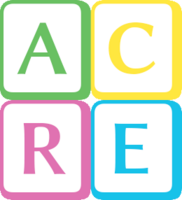
Implementation Masterclass | Term 3: Fine-Tuning
Term 3 of the HIFIS 4 Implementation Masterclass is all thinking about configuring your HIFIS 4 software and fine-tuning all the remaining details. We’re really getting into the nitty-gritty here. We’ll be asking questions like: Which fields should be mandatory? What options do we want in this particular drop-down menu? How will we meet this particular program funding requirement? How much extra power do we want to give our program supervisors?
About Term 3
Term 3 of the HIFIS 4 Implementation Masterclass is all thinking about configuring your HIFIS 4 software and fine-tuning all the remaining details. We’re really getting into the nitty-gritty here. We’ll be asking questions like: Which fields should be mandatory? What options do we want in this particular drop-down menu? How will we meet this particular program funding requirement? How much extra power do we want to give our program supervisors?
If you’re familiar with the concept of the System Development Life Cycle, we’re going to be covering the fourth phase - Development - in this course. If you’re not familiar with the concept, take a look at the diagram below. At a really high level, it shows you what your path will be to HIFIS 4 implementation.

This stage is important in smoothing out the bumps. You should already have a draft set of user rights templates that has been created, but you should think of those more as rough outlines that can and will be modified. We’ve thought about the big picture. Now, we’re thinking about the minutia. We’re going to be addressing gaps and making sure that you’ll be able to report on everything you need to report on.
Target Audience
At the start of this course, we assume that you:
- Know which Partner Agencies will be launching on day 1, and of those Partner Agencies, you know what Programs will be launching and what staff roles those Programs include
- Have rights templates set up for your staff roles that will be part of your first/next phase launch
- Have a mechanism by which you can solicit feedback from your Partner Agencies (i.e. HIFIS Advisory Group)
- Have conducted (or are planning to conduct, soon) an initial User Acceptance Testing session, in which several of your alpha users get an early peek at the software
- Have a server set up to host HIFIS, and a development environment ready to use, and are working on getting a production environment ready
- Have or almost have your legal agreements signed and in place (if you don’t, get on that ASAP because you’re running out of time)
- Are a minimum of TWO months away from your planned HIFIS 4 launch (first/next phase)
Learning Objectives
By the end of this course, you will:
- Have thought through all of your data and reporting requirements and know you will be able to get those data points out
- Have identified what drop-down menus need to be changed locally and have the tools to make those changes
- Have identified what fields need to be made mandatory or disabled or kept optional, and have the tools to make those changes
- Have configured your HIFIS 4 programs
- Know the role you want supervisors and super-users to play in your community, and have designed their rights accordingly
- Have decided if you need any custom forms, and have the tools to add them in
- In short, have configured everything you need to configure in HIFIS 4!
This week, we're going to talk about supervisory staff roles and what they'll be doing in HIFIS 4.

This week, we're focusing on identifying what data you need and we're going to be spending most of the rest of this Term making sure you're capturing it.
Programs in HIFIS 4 are a useful way to categorize your services, so that you can report out on them later. This week, we cover programs in depth.
This week, we talk about mandatory and custom data points, as defined in our data dictionary.

This week, we cover custom tables and questionnaires, two different ways that you can collect extra data beyond what HIFIS normally allows.
This week, we will be discussing our last topic: inventories in HIFIS 4. It's not the best term, but we're talking about things like: rooms, beds, people, housing units, places, and service lists.

























